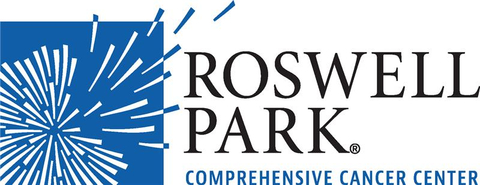Generate:Biomedicines and Roswell Park Comprehensive Cancer Center Enter into a Collaboration Agreement to Accelerate Novel Cell Therapies for Oncology Using Generative AI
Generate:Biomedicines and Roswell Park Comprehensive Cancer Center Enter into a Collaboration Agreement to Accelerate Novel Cell Therapies for Oncology Using Generative AI
Multi-year collaboration will enable development of complex, cutting-edge cell therapies and armoring technologies for solid tumor targets
SOMERVILLE, Mass., & BUFFALO, N.Y.--(BUSINESS WIRE)--Generate:Biomedicines and Roswell Park Comprehensive Cancer Center today announced a strategic collaboration to discover and develop chimeric antigen receptor (CAR) T-cell therapies, and armoring technologies, for up to three oncology targets, including in ovarian cancer and other solid tumors. In ovarian cancer alone, an estimated 314,000 women worldwide are diagnosed and over 200,000 women die each year.
Under the collaboration agreement, Generate:Biomedicines and Roswell Park will contribute toward creating optimized cell therapies, where a patient’s T cells are engineered to recognize and kill tumors. In recent years, CAR T-cells have seen remarkable successes for the treatment of liquid tumors, such as leukemia and lymphoma, including FDA approvals; however, successful treatment of solid tumors remains a major challenge for the field.
The collaboration combines the programmability and scalability of The Generate Platform and Roswell Park’s expertise in cell therapy design, clinical development, and manufacturing to bring best-in-class cell therapies to patients. The collaboration continues the significant momentum associated with the recently announced expansion, supported in part by New York State funds, that will make Roswell Park’s Current Good Manufacturing Practice (cGMP) facilities the largest academic cell therapy center in the United States.
“This is a powerful combination that brings together Roswell Park’s world-leading expertise in cell therapy manufacturing and our technology and computational power,” said Generate:Biomedicines’ Executive Vice President, Research & Development, Alex Snyder, M.D. “Dr. Brentjens – whose lab played a foundational role in development of the currently approved therapies – together with Dr. Davila and their team are among the world’s leading experts in cell therapy. Together we will deliver novel CAR T-cell therapeutics rapidly to change outcomes for patients with advanced solid tumors.”
“This collaboration with Generate:Biomedicines will allow us to harness the power of generative AI to rapidly advance our research to make groundbreaking cancer therapies for patients who are in need of new treatment options,” said Renier Brentjens, M.D., Ph.D., Deputy Director and Chair of Medicine at Roswell Park Comprehensive Cancer Center.
“Getting these complex new therapies to patients can often be a lengthy and complicated process requiring versatile solutions. By tapping into The Generate Platform, we see a great opportunity to efficiently and effectively advance innovative oncology treatments from idea to clinic,” adds Marco Davila, M.D., Ph.D., Senior Vice President and Associate Director for Translational Research, Department of Medicine, Roswell Park Comprehensive Cancer Center.
Under the agreement terms, Generate:Biomedicines and Roswell Park will share research and development expenses as well as profits generated through commercialization of products that emerge from the collaboration. It is anticipated that Roswell Park will serve as a site and recommend lead investigators for Phase I and II clinical trials.
About Cell Therapies
Cellular therapy uses living cells to destroy and control cancer cells. They are a new form of immunotherapy, whereby T-cells are administered to patients to assist the body’s ability to fight diseases like cancer. Typically, these T-cells are first extracted from a patient’s blood and then are changed in a lab to enhance their targeting capabilities – consequently enabling them to identify and eliminate cancer cells.
About Generative Biology
Generative biology represents a fundamental shift in therapeutic development driven by generative artificial intelligence (AI). This approach creates never-before-seen therapeutic molecules targeted to specific biological processes involved in disease that can be modulated with a wide range of protein modalities – from short peptides to complex antibodies, enzymes, and cytokines. But the promise of generative biology goes beyond existing proteins found in nature and can create novel proteins that are purpose-built to address an existing or emerging therapeutic need. As a result, generative biology promises to leave trial-and-error drug discovery methods behind to usher in a new era of programmable drug generation that’s faster, cheaper, and better tailored to specific conditions.
About Generate:Biomedicines
Generate:Biomedicines is the first drug generation company, pioneering a machine learning-powered generative biology platform with the ability to create new drugs on demand across a wide range of biologic modalities. The Generate Platform – which is a continuous loop to generate, build, measure, and learn – can drastically increase the speed at which targets and therapeutics are identified and validated. This will improve the specificity of target engagement by generated proteins and reduce the time and cost of identifying and developing clinical candidates. Generate:Biomedicines was founded by Flagship Pioneering after two years of foundational research in its Labs unit and launched in 2020. Learn more about Generate:Biomedicines by visiting https://generatebiomedicines.com/ or following the company on Twitter and LinkedIn.
About Roswell Park Comprehensive Cancer Center
From the world’s first chemotherapy research to the PSA prostate cancer biomarker, Roswell Park Comprehensive Cancer Center generates innovations that shape how cancer is detected, treated and prevented worldwide. Driven to eliminate cancer’s grip on humanity, the Roswell Park team of 4,000 makes compassionate, patient-centered cancer care and services accessible across New York State and beyond. Founded in 1898, Roswell Park was among the first three cancer centers nationwide to become a National Cancer Institute-designated comprehensive cancer center and is the only one to hold this designation in Upstate New York. To learn more about Roswell Park Comprehensive Cancer Center and the Roswell Park Care Network, visit www.roswellpark.org, call 1-800-ROSWELL (1-800-767-9355) or email ASKRoswell@RoswellPark.org.
Contacts
Media
Megan McLaughlin
pr@generatebiomedicines.com
Rebecca Vogt
716-845-4919
rebecca.vogt@roswellpark.org


